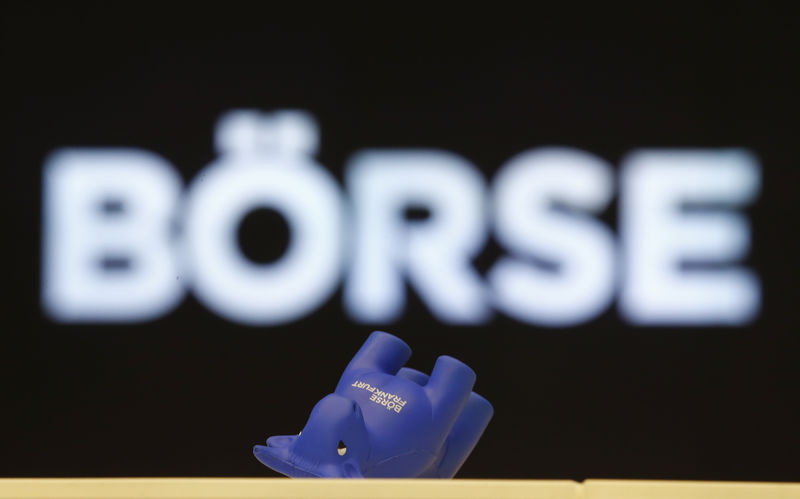This post was originally published on this site

At 02:00 ET (06:00 GMT), the DAX futures contract in Germany traded 0.3% lower, CAC 40 futures in France dropped 0.2%, while the FTSE 100 futures contract in the U.K. rose 0.4%.
The main U.S. indices closed with hefty losses Thursday despite strong earnings from chip maker Nvidia (NASDAQ:NVDA) on fears of more hawkish signals from the Federal Reserve, with Chair Jerome Powell set to speak at the Jackson Hole Symposium later in the session.
This risk-averse nature translated into losses in Asia earlier Friday, and the European indices are likely to largely follow suit.
The meeting comes as the Fed faces the choice of raising interest rates again or keeping rates steady after raising them in July. The next policy meeting is in September, and while inflation readings have been cooling in the past few months, they still aren’t back to the Fed’s annual 2% target.
Additionally, Thursday’s weekly figures on unemployment insurance served as a reminder that the U.S. labor market remains tight, providing no relief for the Fed.
Back in Europe, inflation remains an issue although weak business activity data pointed to deepening economic pain in Europe.
German gross domestic product was flat in the second quarter, an annual drop of 0.2%, data showed Friday, as the eurozone’s largest economy suffered from a deepening downturn in manufacturing output.
The European Central Bank next meets in September, and JPMorgan now expects the central bank to pause its tightening cycle in September, with a final 25 basis point hike to now come in October, instead of September, as it predicted earlier.
In the U.K., the GfK consumer sentiment indicator rose to -25 in August from a three-month low of -30 in July, its biggest rise since April, data showed earlier Friday, as lower inflation made Britons less downbeat about the outlook for their personal finances.
Oil prices edged higher Friday, but remained on course for a second consecutive week as concerns over slowing Chinese demand and increased U.S. supply as well as a stronger dollar weighed.
The dollar jumped to its strongest level since early-June earlier Friday, ahead of a speech by Federal Reserve Chair Jerome Powell at the Jackson Hole symposium. Strength in the dollar weighs on oil markets by making crude more expensive for international buyers.
By 02:00 ET, the U.S. crude futures traded 0.7% higher at $79.57 a barrel, while the Brent contract climbed 0.6% to $83.86.
The benchmarks are set to fall between 1%-2.5% for the week, a second consecutive week of decline.
Additionally, gold futures fell 0.3% to $1,941.95/oz, while EUR/USD traded 0.2% lower at 1.0789.


